April 2, 2020
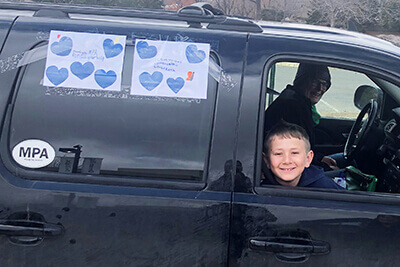 by Dr. Bill Hudson, Head of School
by Dr. Bill Hudson, Head of School
My father used to say that it’s when the rubber meets the road that you know the value of something. There comes a time, he would say, when your values, resolve, or abilities will be tested and in that difficult or challenging moment, you’ll see what you are made of. The value of the MPA community has never been more clear to me than it has been over the last several weeks.
Without question, the pandemic is extremely difficult for all of us and there are more challenges to come. However, what has helped me, both professionally and personally, has been the resiliency and kindness of the MPA community. As you know, it’s been no small fete to transition to a virtual platform and to do so in accordance to our mission and values. Our teachers, students, and parents have all demonstrated the ability to quickly switch gears and adapt to a new platform. Our community has also shown great depths of kindness, caring for one another and sharing appreciation for teachers.
In our most recent parent survey, 90% said they were either satisfied or highly satisfied with our shift to virtual school. One parent shared, “Honestly, I thought that I knew how wonderful all those who work at MPA were—but today, being beside my son navigating his first day of virtual school, I was blown away with the professionalism, expertise, love, and support for the students at MPA. What an amazing team of beautiful, incredibly talented people our children have the awesome opportunity of encountering.” Read More
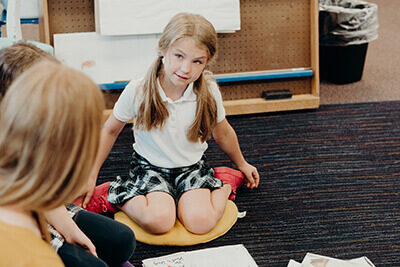 “The most valuable thing that will come from this pandemic is that we don’t have time to save our kids from negative emotions anymore.” Mounds Park Academy school psychologist Jules Nolan shared this observation in a recent virtual MPA parent education session.
“The most valuable thing that will come from this pandemic is that we don’t have time to save our kids from negative emotions anymore.” Mounds Park Academy school psychologist Jules Nolan shared this observation in a recent virtual MPA parent education session.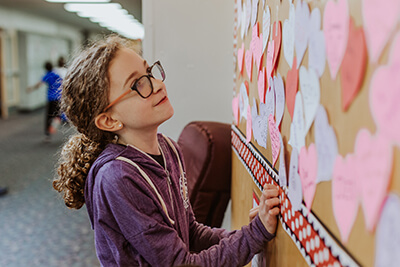 We’ve heard from many families in recent weeks as we’ve planned for and unveiled virtual learning. One theme that keeps coming up is that MPA families want to spread the joy and love they have for school, while supporting teachers who are working hard to continue meaningful education across divisions.
We’ve heard from many families in recent weeks as we’ve planned for and unveiled virtual learning. One theme that keeps coming up is that MPA families want to spread the joy and love they have for school, while supporting teachers who are working hard to continue meaningful education across divisions. 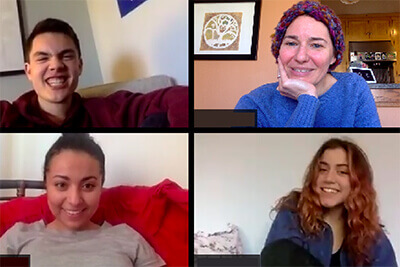 by Dr. Bill Hudson, head of school
by Dr. Bill Hudson, head of school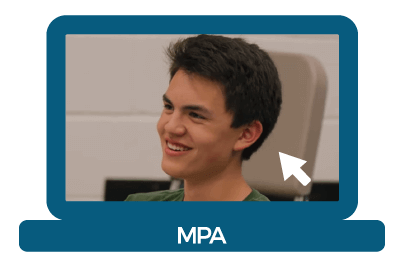 This story series illustrates how our community is embracing, growing, and connecting through virtual learning together. Read on to see what MPA junior Isak Dai looks forward to as #MPAgoesvirtual!
This story series illustrates how our community is embracing, growing, and connecting through virtual learning together. Read on to see what MPA junior Isak Dai looks forward to as #MPAgoesvirtual!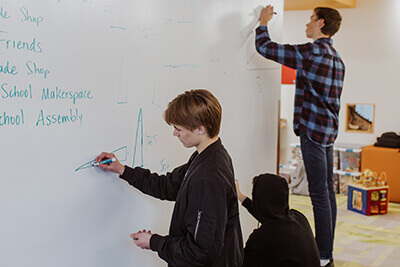 You are looking at school like Mounds Park Academy because you want the best for your child. You want your child to grow into a free spirit, a risk taker, a right maker, dreamer, and a doer. You want an independent thinker. Yet should your child, whom you have raised to be a respectful, decisive, critical thinker, make their own school choice? And what is your role, as the parent, in the school search process? This is a question that the Office of Admission is asked regularly.
You are looking at school like Mounds Park Academy because you want the best for your child. You want your child to grow into a free spirit, a risk taker, a right maker, dreamer, and a doer. You want an independent thinker. Yet should your child, whom you have raised to be a respectful, decisive, critical thinker, make their own school choice? And what is your role, as the parent, in the school search process? This is a question that the Office of Admission is asked regularly.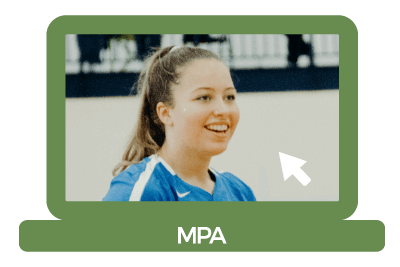 This story series illustrates how our community is embracing, growing, and connecting through virtual learning together. Read on to see what MPA sophomore Kaija Kunze-Hoeg looks forward to as #MPAgoesvirtual!
This story series illustrates how our community is embracing, growing, and connecting through virtual learning together. Read on to see what MPA sophomore Kaija Kunze-Hoeg looks forward to as #MPAgoesvirtual! At Mounds Park Academy, a private school in Saint Paul, the words “kindergarten” and “joy” are inseparable. And it doesn’t matter who’s describing the experience. When asked what she loves about teaching kindergarten, MPA’s Kristine Petersen said immediately, “Pure joy!” While Petersen didn’t specify if it was her joy or that of her students, it’s clear from a parent’s feedback that it’s both.
At Mounds Park Academy, a private school in Saint Paul, the words “kindergarten” and “joy” are inseparable. And it doesn’t matter who’s describing the experience. When asked what she loves about teaching kindergarten, MPA’s Kristine Petersen said immediately, “Pure joy!” While Petersen didn’t specify if it was her joy or that of her students, it’s clear from a parent’s feedback that it’s both. by Mark Segal, Upper School director
by Mark Segal, Upper School director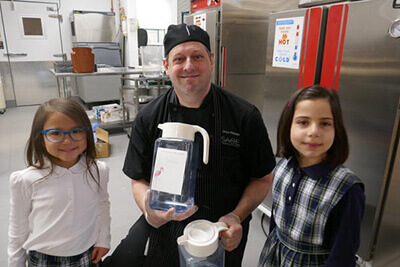 Located right outside the kindergarten classroom door is a grand staple of the playground that provides so much for our campus–a shady spot during Summer At MPA, colorful leaves to play in throughout autumn, and a steadfast symbol of growth. MPA parent and volunteer Michelle Mick, a passionate gardener and extraordinary green thumb, and her family set out to tap the only maple tree on MPA’s campus.
Located right outside the kindergarten classroom door is a grand staple of the playground that provides so much for our campus–a shady spot during Summer At MPA, colorful leaves to play in throughout autumn, and a steadfast symbol of growth. MPA parent and volunteer Michelle Mick, a passionate gardener and extraordinary green thumb, and her family set out to tap the only maple tree on MPA’s campus.